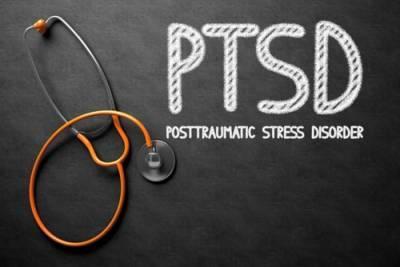
 Each year, approximately 1.7 million Americans are diagnosed with some type of traumatic brain injury, or TBI. A sudden blow to the head typically causes such injuries. It is a little more difficult to pin down the number of people who suffer from post-traumatic stress disorder (PTSD), as many are never diagnosed or seek treatment. Experts estimate that somewhere around 8 percent of American adults—or more than 24 million—are afflicted with PTSD.
Each year, approximately 1.7 million Americans are diagnosed with some type of traumatic brain injury, or TBI. A sudden blow to the head typically causes such injuries. It is a little more difficult to pin down the number of people who suffer from post-traumatic stress disorder (PTSD), as many are never diagnosed or seek treatment. Experts estimate that somewhere around 8 percent of American adults—or more than 24 million—are afflicted with PTSD.
Those who develop PTSD are often the victims of rape or assault or soldiers who have witnessed intense combat situations. A recent study, however, suggests that TBI victims may also be more likely to develop PTSD than the average person. Such a link could have an effect on accident cases that involve head and brain injuries.
Examining the Relationship
For many years, scientists have suspected that a link may exist between traumatic brain injuries and post-traumatic stress disorder. In one study, researchers examined combat veterans who had been in close proximity to an explosion during their deployments. Subjects who suffered a TBI in the line of duty were found to be two times more likely to develop PTSD than those did not suffer a TBI. The team could not explain why, however.
More recently, a team at the University of California conducted a series of experiments on rats. One group of rats had experienced a TBI and a control group consisted of healthy rats. Both groups were exposed to “fear conditioning,” and researchers examined the portion of the rats’ brains associated with fear responses. They found that the rats who had suffered TBIs experienced amplified responses to the fearful situation. This led the team to conclude that traumatic brain injuries could increase “susceptibility to post-traumatic stress,” including a possible PTSD diagnosis.
What Does This Mean for Accident Victims?
If the link between TBI and PTSD does exist, the possibility of a PTSD diagnosis must be considered when pursuing compensation for victims who have suffered a TBI. Frightening situations in the future—or even the original accident itself—could trigger PTSD symptoms down the road. Thus, it is important to account for the possibility of added treatments costs, even if PTSD is not immediately evident.
Calculating the costs of future care can be extremely complex, and insurance companies are often quick to offer settlements that are far too low to meet the needs of an injured victim. If you or a loved one has suffered a traumatic brain injury in any type of accident, contact an experienced Aurora personal injury attorney today. At Kinnally Flaherty Krentz Loran Hodge & Masur, P.C., we understand the importance of protecting victims’ rights, and we will work hard to get you the compensation you deserve. Call 630-907-0909 for a free consultation today.
Sources:
https://www.cdc.gov/traumaticbraininjury/pdf/BlueBook_factsheet-a.pdf
http://www.medicaldaily.com/there-link-between-concussions-and-risk-ptsd-solider-studies-suggest-brain-398956
http://www.ptsdunited.org/ptsd-statistics-2/